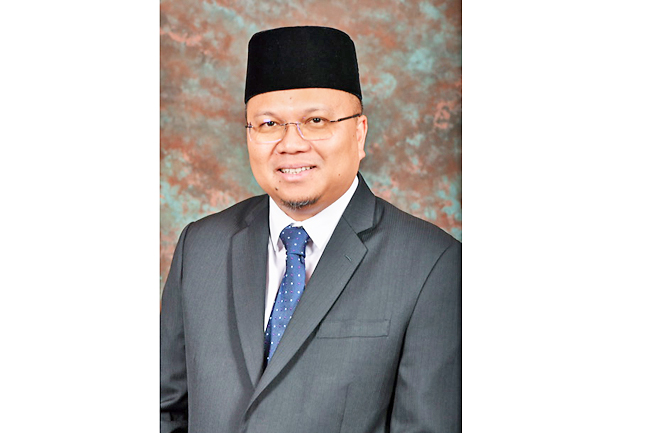Izah Azahari
Brunei Darussalam is one of the countries with the lowest rate of human immunodeficiency virus (HIV) cases. The first HIV case was reported in the Sultanate in 1986. As of December 2021, some 374 cases have been reported. Out of this, 74 cases have died.
Minister of Health Dato Seri Setia Dr Haji Mohd Isham bin Haji Jaafar said this in his message in conjunction with the World AIDS Day Celebration today, themed ‘Equalise’.
Earlier, the minister said since the acquired immune deficiency syndrome (AIDS) epidemic began to gain global attention in 1981, HIV infection remains a threat to public health and affects the lives of millions around the world.
World Health Organization (WHO) statistics estimate that there will be approximately 38.4 million people living with HIV worldwide at the end of 2021 with 1.5 million being new cases of infection. Meanwhile, as many as 650,000 people are estimated to have died due to infections and health problems following HIV infection worldwide.
In the case of Brunei Darussalam, the minister said in recent years, the rate of cases increased beyond the rate in previous years.
This is due to the increased public awareness about HIV infection and its detection where more of those at high risk of the infection come forward to undergo testing and get information about HIV infection prevention methods.

In the Sultanate, people at high risk of HIV infection are those who practice promiscuous and unprotected sex, especially sex between men (MSM).
The WHO launched the World AIDS Day celebration in 1988 and every year, it is celebrated on December 1 focussing on efforts towards ending the AIDS epidemic.
This year, the theme of World AIDS Day is ‘Equalise’, a call for all to try to take practical action to address the inequalities that are an obstacle in efforts to end the AIDS epidemic.
To achieve the target of this year’s theme, a number of actions has been outlined that can be followed together as a community united against the epidemic. This includes improving service delivery, quality and appropriateness of HIV treatment, testing and prevention for all; implementing policy and practice reforms to address stigma and discrimination faced by people living with HIV; sharing new HIV technologies to increase equal access to all; and encouraging the sufferer and patient community to voice the inequalities they face and take action to address them.
Although there is currently no cure for HIV infection, with the availability of effective HIV prevention, testing, detection, treatment and care aid, people living with HIV can live a healthy life like everyone else.
As an individual, there are some simple steps that can be followed to reduce the risk of HIV and AIDS infection, such as abstaining, being faithful, being safe and getting checked.
According to a WHO report, progress towards the goal of ending HIV infection globally has stalled in recent years.
The ongoing COVID-19 pandemic and other global crises disrupted the implementation of HIV prevention and control programmes such as the channelling of HIV programme resourcesand funds to other programmes. The impact of geopolitical changes on the economy, human migration and access to HIV care has also slowed down and reversed the gains made in the past decade in addressing HIV/AIDS infection, particularly the issue of inequality faced by people living with, or affected by, HIV/AIDS.
This further emphasises the need to address inequities and access to HIV and AIDS care.
Despite being challenged by the COVID-19 pandemic, health services for HIV patients in Brunei Darussalam, including testing, treatment and counselling services can continue to be provided to ensure they have continuous access and do not affect their health care.
“The Ministry of Health is committed and will continue to work to ensure that those at high risk and those affected by HIV will receive quality and equitable services, without stigma and inequality. Confidentiality for those who want to come forward for an HIV test is the main and important basis in medical services in this country.
“It is supported by the existing legislation which is the Infectious Diseases Act Chapter 204 that has specific provisions to protect the confidentiality of patients infected with HIV.
“World AIDS Day provides an opportunity for all, as individuals and society at large, to take action to achieve the ultimate goal of ending the AIDS epidemic,” the minister said.
“Let us remind each other that we need to be equally responsible for our health.
“Renewed commitment to ending HIV by improving HIV services and eliminating stigma and discrimination against those infected. Provide support to individuals living with HIV and remember those who have died from AIDS-related illnesses. Make the difficulties faced as a motivation for us to continue to try to help those around us, especially patients by providing more excellent, fair and sustainable services so that everyone has access to all the health services they need, for whatever health threats that they face,” the minister said.




